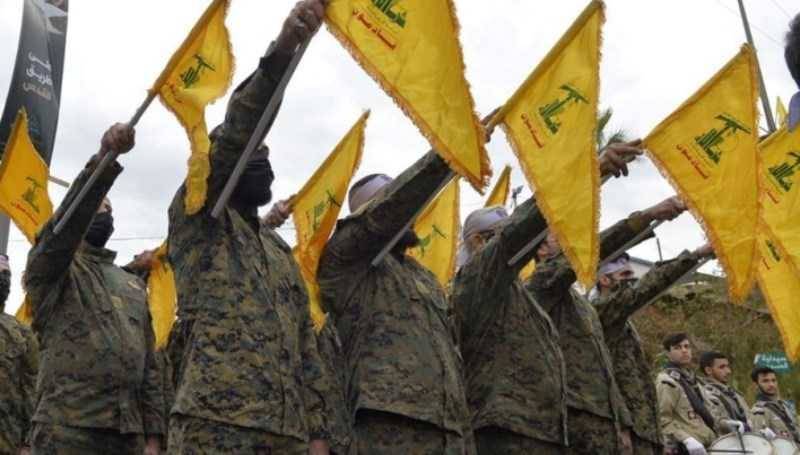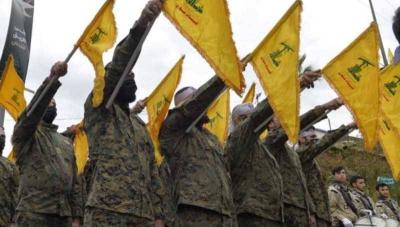Lebanon has transitioned from a phase of diplomatic warnings and Israeli threats to a new stage accompanying the open confrontations between Hezbollah and the Israeli occupation army. This is a phase of psychological warfare, which Hezbollah has chosen to escalate, from the release of the "Hod Hod" video to publishing another installment of Israeli targets, in addition to awaiting more targets that will be revealed in new videos, as reported by "Al-Modon." In contrast, the Israelis are responding with a counter-campaign, including actions against Rafic Hariri International Airport, releasing videos of Beirut, and threatening to destroy it.
Psychological warfare is replacing actual combat and is accompanied by ongoing communications aimed at reaching a diplomatic agreement instead of military escalation.
**Exclusion of War**
Politically, Hezbollah continues to rule out an Israeli war, considering that Israel is incapable of expanding its operations as long as it cannot resolve the situation in Gaza. The party puts all this intimidating rhetoric in the category of psychological warfare, especially regarding the leaks from Israelis about escalation, intensified fire, or even the assassination of the party’s Secretary-General.
Official political sources also continue to dismiss the possibility of war, believing that despite the abundance of rhetoric around escalation and threats, Israel and the West will not be prepared to reopen a new war. The pressures are ongoing to avoid war, and any escalation that may occur will happen within certain frameworks, likely aligned with the current confrontation dynamics, with some gradual escalation, while diplomatic solution options remain viable.
**Limited Operation**
On the military level, Hezbollah is acting as if war is imminent and is taking all necessary precautions. Security and military sources mention that there are indicators about the Israeli army's readiness to launch a limited military operation inside Lebanese territory to push Hezbollah away from the borders. According to the information, should this attack occur, it is likely to begin through infiltration or a ground assault via one or more towns simultaneously across several adjacent border towns.
Accordingly, the party has requested its fighters stationed in the border communities from the western sector through the central to the eastern sector to remain in their positions, providing them with reinforcements from the missile unit. In anticipation of an Israeli attack, the party has raised the state of alert and readiness among its fighters in the Radwan Brigade and Nasr Unit along the axes where the Israelis could infiltrate from one or more pathways, specifically: Aita al-Chaab, Rmeish, Yaron, Maroun al-Ras, Aytarun, Bledah, Muhaybib, Mais al-Jabal, Hula, Markaba, Adaysseh, Kafr Kila, Taybe, and Wazzani.
The nature of the confrontation for Hezbollah will combine direct engagement with missile strikes and drone attacks on Israeli targets deep within northern Palestine. The party also considers the possibility that the Israelis might conduct naval landings on the shores of Al-Bayyadah and Naqoura and is preparing to respond if the Israelis take such action. Conversely, it is deemed unlikely that this Israeli plan is feasible after all these months of conflict in Gaza, and that the Israeli army lacks the readiness for such an operation.
**Hezbollah's Drones and Submarines**
In this context, sources reveal that Tehran will support Hezbollah with all available weapons, having supplied it with long-range naval drones and remote-controlled submarines capable of approaching Israeli shores and striking targets there. These are made from radar-evading materials, such as compressed carbon fiber. This is the latest technology that Iran has developed. Furthermore, Tehran has provided the party with surface-to-sea missiles operating at low altitudes and torpedoes to address maritime targets from submarines and warships, as well as floating bases, developed at Hezbollah's request to target Israeli maritime facilities, such as gas platforms and vessels in the Mediterranean. This has prompted Hezbollah’s Secretary-General, Sayyed Hassan Nasrallah, to threaten the Israelis, saying, "Await us on land, at sea, and in the air."
According to the information, Iranian defense industries have developed a new type of missile capable of targeting Israeli air defense batteries, including the Iron Dome, which Hezbollah successfully tested in recent weeks. In preparation for war, the joint military operations room of the Resistance Axis has also discussed how forces and factions from various regions, particularly from Iraq and Yemen, could assist Hezbollah in the event of war, as per "Al-Modon."




